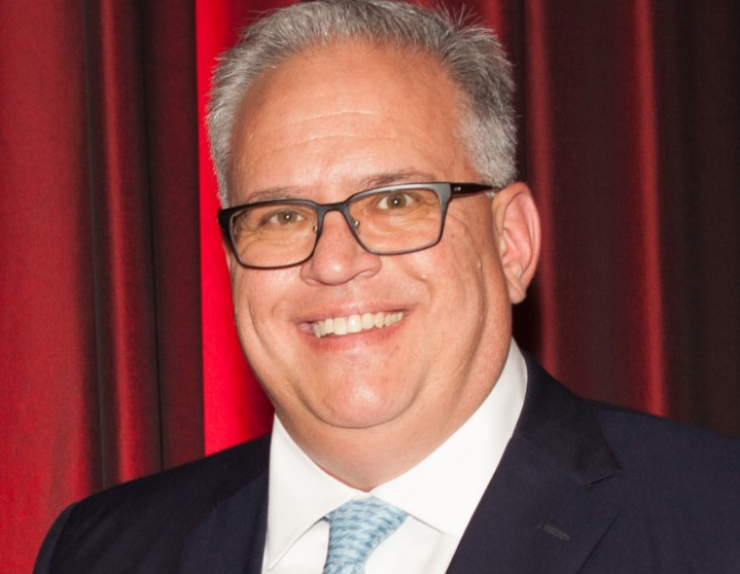Bond dealers want in on two federal programs that they hope would improve market liquidity and create a backstop for issuers in remarketing variable-rate demand notes as a way to mitigate the impact of COVID-19.
In a letter sent to the Federal Reserve Wednesday, the Bond Dealers of America asked Fed Chair Jerome Powell to expand two programs to the municipal market — the Primary Dealer Credit Facility and a Commercial Paper Funding Facility. The Fed announced both this week.
BDA wants more municipal market dealers to be included in PDCF and also wants variable-rate demand notes to be a part of CPFF.
“The municipal market, like all sectors of the capital markets, has been hit hard by the economic uncertainty associated with the coronavirus pandemic,” said Mike Nicholas, BDA CEO. “Liquidity has waned significantly as measured by bid-ask spreads and price volatility has been perhaps the most severe ever in the history of the market.”
The muni market has been tumultuous over the past few weeks. Now labeled a pandemic, COVID-19 has affected more than 7,000 Americans. The virus that causes that illness is a member of the coronavirus family.
CPFF was established this week and it will provide a liquidity backstop for issuers with commercial paper. For issuers that are unable to sell a new commercial paper issuance to pay off old commercial paper, the Fed will hold it until maturity.
Municipal issuers use variable rate demand notes which are different from commercial paper, since they are typically more long-term than commercial paper which may have maturities of only a few days in some cases.
VRDNs behave like commercial paper in the sense of being short-term securities, but their rates reset periodically or every week.

“We’ve heard some stories that issuers are having a difficult time with VRDNs under current market conditions,” said Michael Decker, BDA’s senior vice president of policy and research. “If the market freezes, then the Fed could be a last resort buyer to help those issuers avoid penalty interest rates or having to redeem their VRDNs under bank liquidity arrangements.”
Those bank liquidity arrangements can be costly to issuers, Decker said.
If CPFF were to include VRDNs, issuers not able to find buyers for its VRDNs could lean on the Fed to be the buyer of last resort.
“VRDN issuers and dealers and banks who support the VRDN market today face some of the same issues as issuers and intermediaries in the CP market, including expensive backup bank facilities, skittish investors concerned about the virus, and dealer inventories that are ‘full,’” Nicholas wrote.
PDCF was also launched this week and will support the credit needs of households and businesses. It allows primary dealers to “support smooth market functioning and facilitate the availability of credit to businesses and households.”
PDCF becomes available starting March 20 and will be in place for at least six months.
PDCF would provide dealers needing to finance their bond inventory a fairly-priced way to do so with the Fed’s support, Decker said.
Right now the program is only open to the 24 "primary dealers" that act as market makers for the New York Fed's implementation of monetary policy, buying securities directly from the federal government. This includes some of the world's largest investment banks, such as Wells Fargo and J.P. Morgan.
While some of those firms have muni businesses, Nicholas said the program needs to be expanded to support the unique nature of the muni market.
"The retail nature of the municipal market means that rather than a small number of large institutional customers spread among a few primary dealers as in other market sectors, the market is characterized by a large number of small retail customers serviced by retail-focused dealers, most of whom are not among the 24 primary dealers," Nicholas wrote.
"Indeed, many of the banks and dealers on the New York Fed’s primary dealer list do not even participate actively in the municipal market. Limiting financing for municipal inventories only to primary dealers would exclude a large number of municipal securities dealers committed to supporting market liquidity as well as, of course, their customers."
Dealers would essentially be borrowing from the Federal Reserve and using their portfolios as collateral, Decker said.
“This would provide a way for municipal dealers to finance their portfolios cheaply and effectively while the market is stressed,” Decker said.
Decker believes BDA’s case to be included in the two facilities is strong, as the Fed has already signaled it is willing to take these steps for other markets.
“They have clearly decided that they’re comfortable in taking these actions with respect to the non-municipal portions of the market,” Decker said.





